WUSF Public Media – WUSF 89.7 | By Steve Newborn

Gov. Ron DeSantis and the Florida Cabinet on Tuesday voted to spend around $100 million to help protect nearly 40,000 acres within the Florida Wildlife Corridor.
The governor and members of the Cabinet approved the conservation of the 13 properties without comment. They include 12 parcels where the state purchased the development rights, allowing the owners to continue ranching and farming.
Julie Morris is with the non-profit Florida Conservation Group, which has been working to get conservation easements on four of these properties – totaling over 8,000 acres, including Hardee, DeSoto and Highlands counties. They’ve been active in protecting areas in the Peace River watershed – which is critical for drinking water supplies in much of the region.
Two of these are 1,000-acre properties along Charlie Creek and Horse Creek, which flow into the Peace River.
“Horse Creek is one of the most important tributaries. It supplies, I think, 15 percent of the fresh water to the Peace River,” Morris said. “And the Peace River is, of course, the drinking water for over a million people downstream.”
The purchases continue the progress made since the passage of the Florida Wildlife Corridor Act in 2021, which calls for spending $300 million a year to help connect preserved areas that are in danger of becoming isolated by development.
“I don’t think I’m being hyperbolic when I say we are in a race against time,” Morris said. “That we’re losing natural and agricultural lands at such a rapid pace that we have this window to protect what we need to protect, not just for wildlife corridors, but for clean water and a healthy economy.”

Nine of the parcels are in St. Lucie, DeSoto, Walton, Hardee, Polk, Highlands and Charlotte counties. These conservation easements are paid for by the state’s Rural and Family Lands Protection Program. And several parcels in St. Lucie, Jefferson and Glades counties will be protected through Florida Forever, which is paid for by a tax on real estate transactions.
Morris said earlier this year, the state and water district preserved about 16,000 acres along Horse Creek.
“I think our leadership sees the importance and wisdom in land protection, and how important it is for green infrastructure, for clean air, clean water,” Morris said. “So there were years when our land protection was not well funded, and I’m just thrilled that the tide has turned and these projects are being funded.”
The purchases were also hailed by Mallory Lykes Dimmitt, Chief Executive Officer of the Florida Wildlife Corridor Foundation.
“Today is worth celebrating,” Dimmitt wrote. “More than 100,000 acres have been approved for conservation within the Florida Wildlife Corridor since the Florida Wildlife Corridor Act became law on July 1, 2021. This milestone is thanks to the work of many entities and individuals, and it will benefit the state and nation in providing clean water, protecting countless species, and conserving wild Florida for future generations. On behalf of the Florida Wildlife Corridor Foundation, I share my heartfelt thanks to our elected leaders, conservation partners, environmental champions and agency partners.”
.
